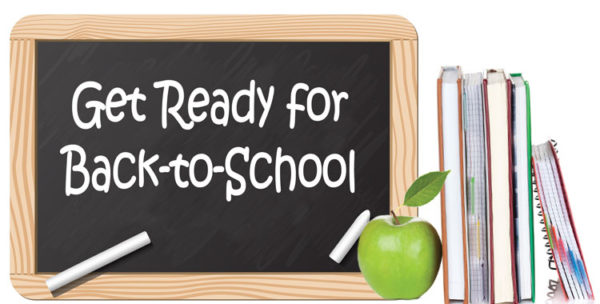Get Ready for Back-to-School
by BusinessWoman magazine / 0 Comments / 583 View / June 30, 2017
When enrolling my daughter in kindergarten in 2010, our school of choice required her to take a placement test. I didn’t give a thought as to what the test might ask her. Tie her shoes? Sing the alphabet? Point to her nose on cue?
Surprised was I when she did not make the cut at our first-choice school.
“Expectations have increased for kids,” Elizabeth Clippinger, center director at Sylvan Learning Center, said. “Schools want kindergarteners to have skills already in place before they’re taught in school.”
When I attended kindergarten, I remember the emphasis being on non-academic learning. Skills like taking turns, using manners, and sharing were my key takeaways.
But Pennsylvania has amped up goals for students in the past 10-15 years.
“Kids are expected to identify their letters confidently and also some sight words,” Clippinger said. “By the time they leave kindergarten, the expectation is that they should be reading.”
Across the scale that spans kindergarten through high school, a student should have mastered 1,400 skills before graduation.
It’s easy to see how kids sometimes get left behind, even if the intention is that no child should be.
No matter how many standardized tests your child takes, there is not one cookie-cutter, magic formula to prepare him for school in the fall. There are, however, a few strategies you can implement based on age, grade level, special needs, and everyday ordinary needs.
Learning is personal and individual for each student. Learning assessments determine at what reading level the child is and where the learning gaps are.
“A learning assessment shows exactly where a child’s skill gaps are,” Clippinger said.
Scoring 85 percent or above in a particular skill means that the student has mastered it. Not only should a student reach the answer accurately, but she should also display consistent recall within five to 10 minutes.
“Then we formulate an individualized learning plan to help them with skills they haven’t yet mastered, to move forward from whatever point that might be,” noted Clippinger.
A learning plan will cover all skills with scores below 85 percent. Then the learning plan will progress in complexity from that point.
The reading level might be labeled by grade-level equivalency, but age doesn’t always determine skill.
“Some students are just further behind,” Clippinger said. “It’s not uncommon to start a fifth-grader at a third-grade reading level. And it’s not uncommon for a kindergartener to not be able to read yet.”
Just as important as the skills kids learn is the foundation upon which those skills are built. Strong foundations lead to a strong academic career. Parental involvement throughout the entire academic career is a basal part of that.
Some advice to cultivate a strong, confident learner:
• Steer toward an academic video instead of an entertaining show.
• Look for academic technology geared for kids.
• Figure out what your student enjoys, then look for ways to build learning around that.
• Ask questions about those hobbies, and encourage back-and-forth conversation.
• Take a family trip to the library.
• Expose your child to new things, and show that learning is fun.
• Set aside space in the house dedicated to homework and studying.
• Help your child become and remain organized.
• Encourage him or her to set realistic goals that are both short and long term. Give scenarios for thinking both big-picture and day-to-day.
• Ask questions such as, “Did I achieve that goal today?” and “What can you do today to affect tomorrow?”
• Ask age-appropriate, problem-solving questions to help them explore alternatives and think creatively. “Your pencil is broken. What can we do to get your homework done?”
• Work with your child as much as possible.
• Praise their independence (as long as they are safe about it).
• Seek out STEM (Science, Technology, Engineering, and Math) opportunities in areas such as robotics, engineering, and coding. This is a growing program increasingly offered in different pockets around the country.
• Build strong relationships with your child’s teachers, tutors, scout leaders, and anyone else in his or her personal village.
This is great advice for older students, too, and Clippinger works with a lot of high school students preparing for SAT and ACT tests.
“We see a lot of success with college prep—about 150-200 points better when students go through our program and do practice tests,” Clippinger said.
And preparing adequately for college is not just about the entrance exams.
“More reading is expected of college students,” Clippinger said. “In our advanced reading program, we teach how to increase both reading rate and comprehension.”
This is the point in which the definition of “student” expands to include adults.
What about kids with special needs? Clippinger sees students with many different disabilities.
“These kids do make progress, just at their pace. Their goals may also be a little different,” she said.
No matter what the skill level, a student who experiences continuous, solid support from his or her personal sphere will fare better than those left alone.
“Even gifted students could benefit from a learning plan to help them seek enrichment,” said Clippinger. “Comprehensive learning is better than piecemeal.” BW


Your Commment
You must be logged in to post a comment.